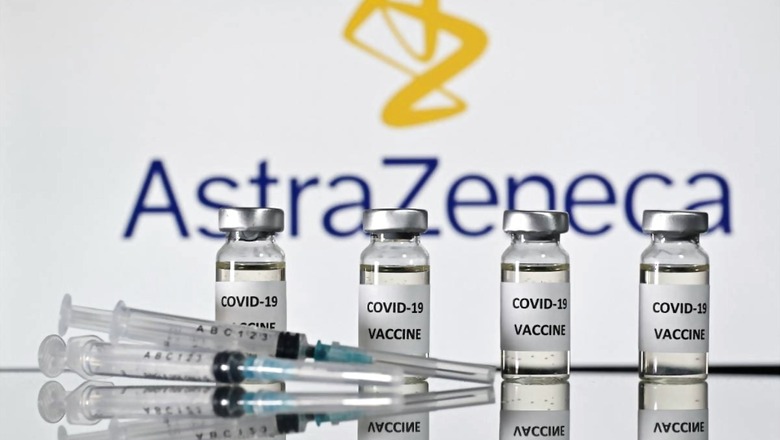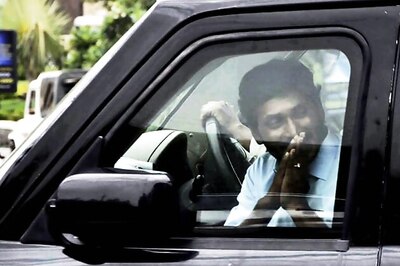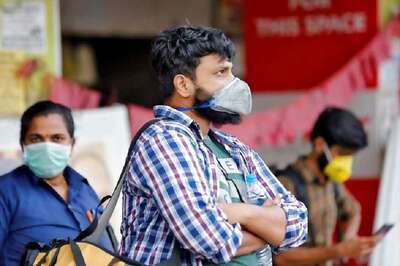
views
As concerns over the use of the Astrazeneca coronavirus vaccine create a furore, the chief scientist of the World Health Organisation has recommended that countries continue to use the same. Fears have grown in a number of countries over the safety of the AstraZeneca vaccine after several cases of blood clots or brain haemorrhages in people after receiving the inoculation, with a small number of deaths reported.
WHO chief scientist Dr Soumya Swaminathan said officials at the UN health agency don’t want people to panic even as close monitoring of the vaccine’s use continues. She said a review is under way that could produce updated recommendations as early as Tuesday.
Swaminathan noted that some 300 million doses of a variety of coronavirus vaccines have been given to people around the world, and there is no documented death that has been linked to a COVID vaccine. She said the rates at which blood clots have occurred in people who received the AstraZeneca vaccine are in fact less than what you would expect in the general population. In a tweet she, Swaminathan said, “Benefits of the AstraZenaca vaccine outweigh the risks. For now. Investigations continue.”
Benefits of the #AstraZenaca vaccine outweigh the risks. For now. Investigations continue. https://t.co/WvAnN7y4Df— Soumya Swaminathan (@doctorsoumya) March 15, 2021
A growing number of European countries, including Germany, France, Italy and Spain have suspended use of AstraZenecas vaccine, though the company and international regulators say there is no evidence the shot is to blame for the blood clots. Sweden is latest nation to pause the use of the vaccine as a precautionary measure.
The Netherlands said it had seen 10 cases of noteworthy adverse side-effects from the AstraZeneca vaccine, hours after the government put its vaccination programme on hold following reports of possible side-effects in other countries. Denmark reported “highly unusual” symptoms in a 60-year-old citizen who died from a blood clot after receiving the vaccine, the same phrase used on Saturday by Norway about three people under the age of 50 it said were being treated in hospital.
The vaccine suspension comes at a time when a third wave of infections, reportedly caused by a more contagious variant, is engulfing Europe. AstraZeneca is also awaiting results from a US trial with 32,000 participants.
Later, France expressed hope European medical experts would clear up questions over the safety of AstraZeneca’s COVID-19 shot, as experts warned the decision by major European states to stop using it posed a greater risk to public health.
French Health Minister Olivier Veran also told reporters that the risk-reward ratio for the vaccine remained positive. “We expect some kind of verdict from the European scientific community by Thursday afternoon, allowing us to resume the campaign,” Veran said. France’s vaccination chief Alain Fischer said he expected the suspension to be temporary.
However, British Prime Minister Boris Johnson has defended the safety of the AstraZeneca vaccine as he echoed assurances that the jab was not harmful. “That vaccine is safe and works extremely well,” Johnson wrote in The Times newspaper. “It is being made in multiple places from India to the US, as well as Britain, and it is being used around the world,” he added.
In repeated statements, AstraZeneca has denied any vaccine link to the clotting. In a statement, it said, “A careful review of all available safety data of more than 17 million people vaccinated in the European Union (EU) and UK with COVID-19 Vaccine AstraZeneca has shown no evidence of an increased risk of pulmonary embolism.”
Meanwhile, in an interview to a local daily, the chief of Italy’s medicines authority said the AstraZeneca vaccine is safe and the decision to suspend the vaccine is a political one.
“We got to the point of a suspension because several European countries, including Germany and France, preferred to interrupt vaccinations… to put them on hold in order to carry out checks. The choice is a political one,” said the director general of Italy’s medicines authority (AIFA) Nicola Magrini.
Magrini said that the AstraZeneca vaccine was safe and that the benefit to risk ratio of the jab is “widely positive”. There have been eight deaths and four cases of serious side-effects following vaccinations in Italy, he added.
Canada has decided to continue with Astrazeneca shots and further widen its coverage. Canadian Prime Minister Justin Trudeau said, “Health Canada and our experts and scientists have spent an awful lot of time making sure that every vaccine approved in Canada is both safe and effective, therefore, the best vaccine for you to take is the first one that is offered to you.”
The vaccine has been granted conditional marketing authorisation or emergency use in more than 70 countries.
In India, AstraZeneca-Oxford vaccine is manufactured and distributed by Serum Institute of India and the government has said that it is revisiting all the AEFIs and hospitalisation.
On Friday, Thailand had become the first country outside Europe to delay rolling out the vaccine when its political leaders were due to have the first shots, but the government said on Monday they would receive the AstraZeneca vaccine on Tuesday. Indonesia, however, said it would delay administering the vaccine and would await a review from WHO.
On Tuesday, Astrazeneca also agreed to supply up to half a million additional doses of its experimental antibody-based COVID-19 combination treatment to the United States for $205 million.
(With inputs from agencies)
Read all the Latest News, Breaking News and Coronavirus News here



















Comments
0 comment